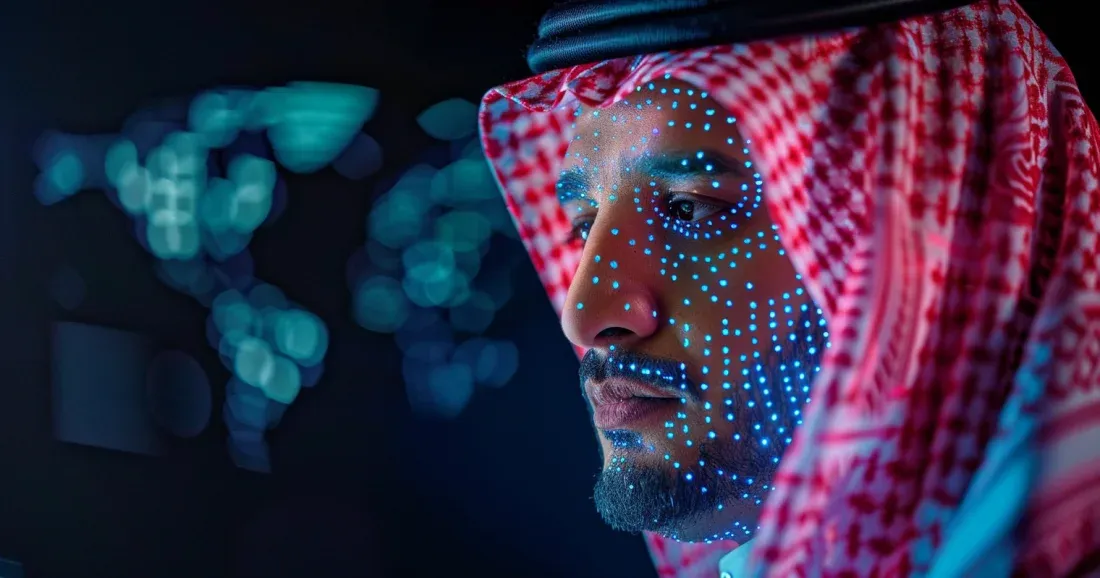March 26, 2024
Discussion of the global race for AI dominance and influence often centers on the United States and China, with Europe forcing itself into the discussion with groundbreaking regulation and the occasional influential startup. But in the Persian Gulf, wealthy states are just as serious about getting in on this powerful — and lucrative — technology.
The New York Times reported last week that the Kingdom of Saudi Arabia plans to create a $40 billion fund solely to invest in artificial intelligence. If this comes to fruition, it will make the Saudi government the world’s largest investor in AI. Next door, the United Arab Emirates has similar ambitions. Through Abu Dhabi’s Advanced Technology Research Council, the government poured millions into a powerful large language model called Falcon, only to release it open-source in September. Meanwhile, OpenAI chief Sam Altman has reportedly sought upwards of $7 trillion from funders including the UAE for a global chip startup.
Alexa Parks, an associate at the Eurasia Group, says both countries have been “relatively ahead of the curve” on AI with the UAE appointing the world’s first AI minister in 2017 and Saudi Arabia declaring in 2020 that it sought a domestic AI market worth $135 billion by 2030.
For Saudi Arabia, in particular, technology is “one of the few non-oil sectors that has successfully and consistently attracted significant foreign direct investment pledges,” Parks says. Both countries have pledged massive amounts to building data centers necessary for running powerful AI, plans that may put them in competition for regional dominance. The two countries seek global influence in the increasingly important AI market, but also financial returns on their investments.
Saudi Arabia and the UAE are in some ways caught in the middle of a broader economic and technological war between the US and China over AI. The US has enacted strict export controls on AI and semiconductor technology with the aim of kneecapping China, especially their military ambitions with AI. G42, one of the UAE’s largest tech firms recently cut ties with China, which should position them to better engage with US-based AI companies in the future. “We haven't seen any Saudi firms be forced to make this choice yet, but it seems likely that it will happen eventually,” Parks says. “Until then, Riyadh will be content to pursue Chinese and Western tech ties and investments to build up its local tech sector as much as possible.”
On Friday, we saw some signals that some US-based AI companies won’t be so quick to take on the potential regulatory risks related to taking Gulf money: Anthropic is reportedly lining up new investors, but already ruled out Saudi Arabia’s sovereign wealth fund, citing national security risks.
These countries’ deep-pockets and investments will make them unavoidable players in the artificial intelligence race, but in order to succeed they may need to choose sides in a broader conflict—though some major players will just flatly reject their money.
More For You
- YouTube
At the 62nd Munich Security Conference in Munich, GZERO’s Tony Maciulis spoke with Benedikt Franke, Vice Chairman and CEO of the Munich Security Conference, to discuss whether the post-1945 global order is under strain or already unraveling.
Most Popular
- YouTube
Zelensky agrees: elections matter #PUPPETREGIME
As more small businesses move sales, payments, and customer relationships online, they unlock new opportunities, but they also become easier targets for cyber-criminals and other threat actors.
TOKYO, JAPAN - FEBRUARY 8: Japan's Prime Minister Sanae Takaichi, leader of the ruling Liberal Democratic Party (LDP), places a red paper rose on the name of an elected candidate at the LDP headquarters on general election day on February 08, 2026 in Tokyo, Japan. Voters across the country headed to polls today as Japan's Lower House election was held.
Photo by Kim Kyung-Hoon - Pool/Getty Images
When Japanese Prime Minister Sanae Takaichi called snap elections last month, it was a big gamble. Holding a winter election just four months into her tenure with no real policy record to run on?
© 2025 GZERO Media. All Rights Reserved | A Eurasia Group media company.
